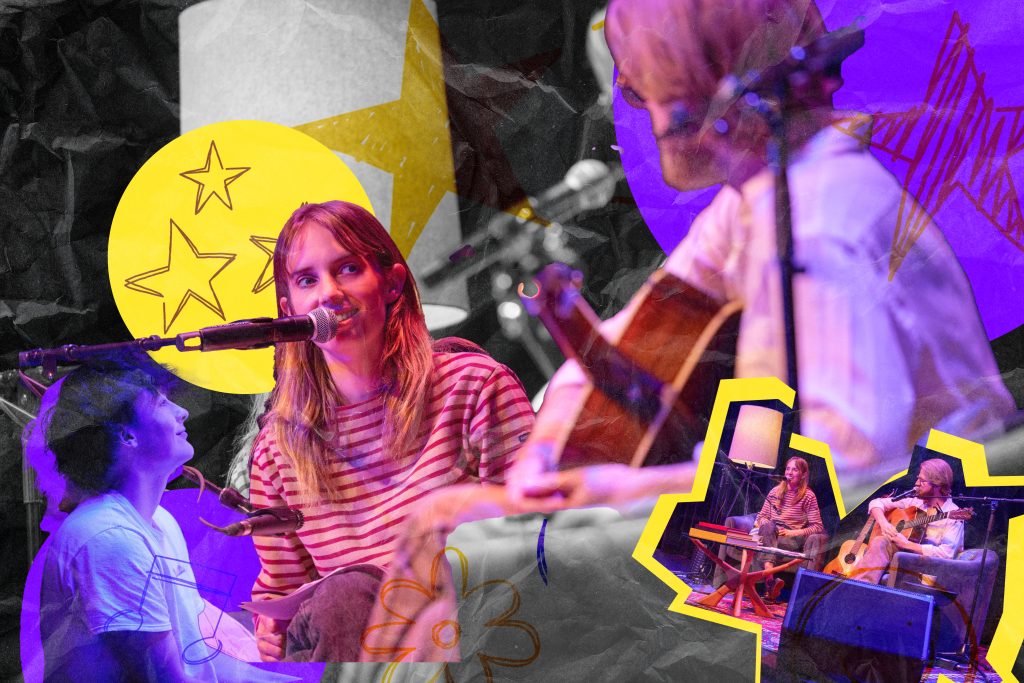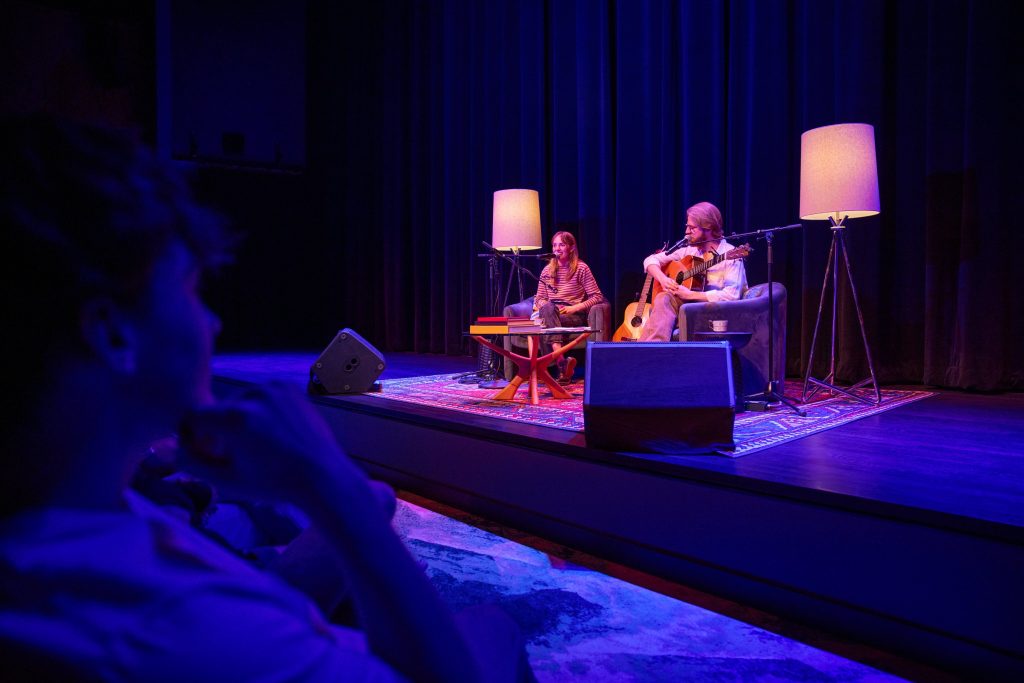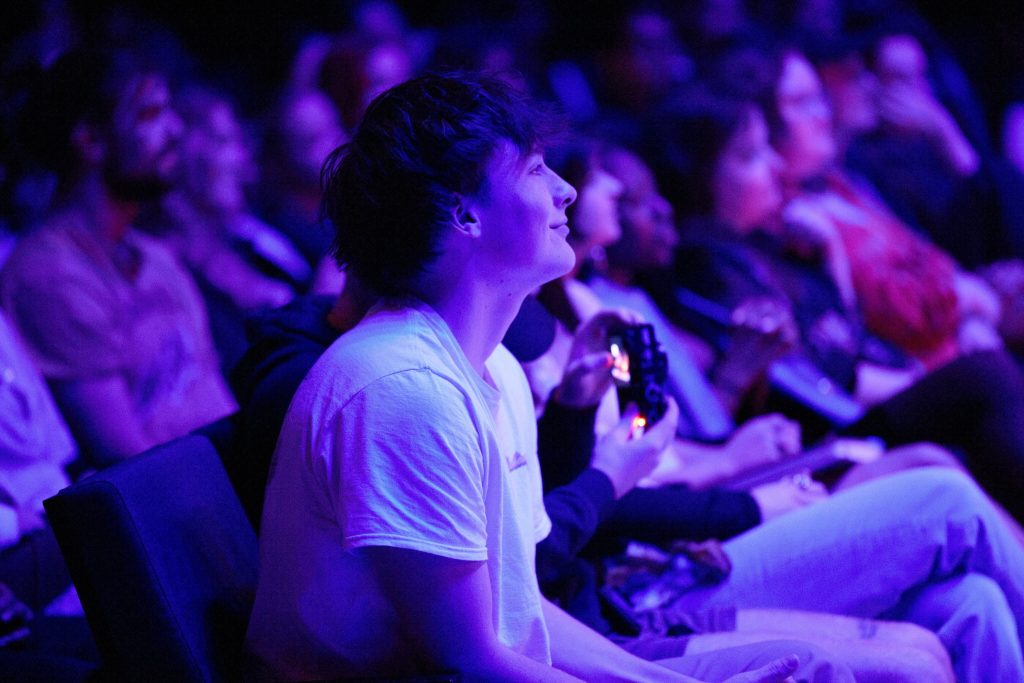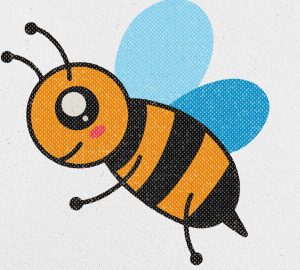Maya Hawke debuts new music at SCADshow concert

Maya Hawke brought a transparency to SCAD that most celebrities would never dare to. The “Stranger Things” actress met the crowd of college students very earnestly and honestly. Alongside another musician, her significant other Christan Lee Hudson, Hawke debuted a few songs from her upcoming project “Chaos Angel,” releasing May 31. Her lyrical content was abstracted from real life, a mesh of general ideas and universal feelings intertwined with stories of lovers, parents, mentors, and whoever else may have been part of her life. In between her beautiful acoustic previews, Hawke and Hudson would engage in unadulterated, panel-like conversations, accompanied by a ubiquitous usage of “fuck” coming from Hudson.
Hawke was not asking for the formalities and pizazz of a standard SCADshow presentation, she wanted to share music, her passion. She began addressing what many of us know her for, her acting career, but it was not the focus of the event. Taking the “shamelessness about working with people” and her understanding of “real art,” Hawke comes together with a group of people to create something. From here, the duo broke into the first song of the night.
A solemn and beautiful weaving of… something. I say “something” instead of attempting to decipher lyrics such as “Can you go to bed without saying goodnight?” out of respect for Hawke. The song ends with the repetition of “Give up, be loved.” A simple enough message when delivered with the acoustic folk-esque soul the duo carried, it became words to cling onto, the only words in the room.
“I often try to hide things,” Hawke said. “Because I want songs to gain the recognition they deserve, not because of the hot air people will blow into it.” The general vibe of her music is enigmatic: She intentionally tells stories that are not “more true” than another, she is a well of her own imagination. The conversation leads to “Tiger,” a song from Hudson, her aforementioned partner. They tell the story of a blue-collar worker and explain to us that while it’s not their living, there’s a sentiment that comes from it.

Hawke’s song “Hang in There” changed the entire weight of the room. The conversation before was pure and honest, speaking on mental health and the life of someone who is objectively “famous.” A feeling that most of us can resonate with, the song comes from a feeling of “unspoken darkness, not sadness — more like anger.” The rasp in Hawke’s voice quivered slightly during this conversation, an audible reflection of her vulnerability. She tells herself, or maybe she tells others, or maybe it falls on deaf ears: “You’re gonna get the hang of it. Hang on. Hang in there. Maybe.” Countless celebrities lose respect from their fandoms when they disconnect from the reality of those who listen. But while Hawke understands that she has had a life better than most, she contains a humanity so grounded that her music and personality resonated with people who knew nothing of her.
The couple told us how to stay sane at that level of attention, “Protect the head.” Hawke’s vulnerability in this concert-panel concoction allowed many of us to see the humanity in the figures so commonly compartmentalized as a result of their occupation. She advised that to protect the head, “You need a community.” Artist to artist, she understood our goals and imparted this wisdom. While still being much better off than almost all in that room, Hawke’s feelings preceded socioeconomic gaps and formed a bond through art.

Her final song, a single titled “Missing Out,” brought the friend I sat next to to tears as it transformed acoustically. Hawke’s upbringing is bled into this song. What I understood was a feeling that she was “missing out” on a “normal” childhood. She abstracts herself in this song. She is Lucy, or knows Lucy, and “Lucy wants to write the next great American novel.” She seems lost or conflicted, reflecting on groups such as students in Ivy Leagues and buying them “booze with my television salary.” Hawke painfully pleads to be “someone to talk to” rather than “about.” She continues and closes, repeating “missing out,” as she has done for each chorus. Again, the simplicity reaches people in a direct way. Hawke showed honesty and humanity as a star in an industry where there is little of both. She is a true artist, multifaceted, and authentic. I had the chance to shake her hand and ask a final question.
“What would you say you express most purely in your music?”
She responded, “I don’t know. Maybe how much I love my friends?”
Thank you for a great show, Maya Hawke.


























